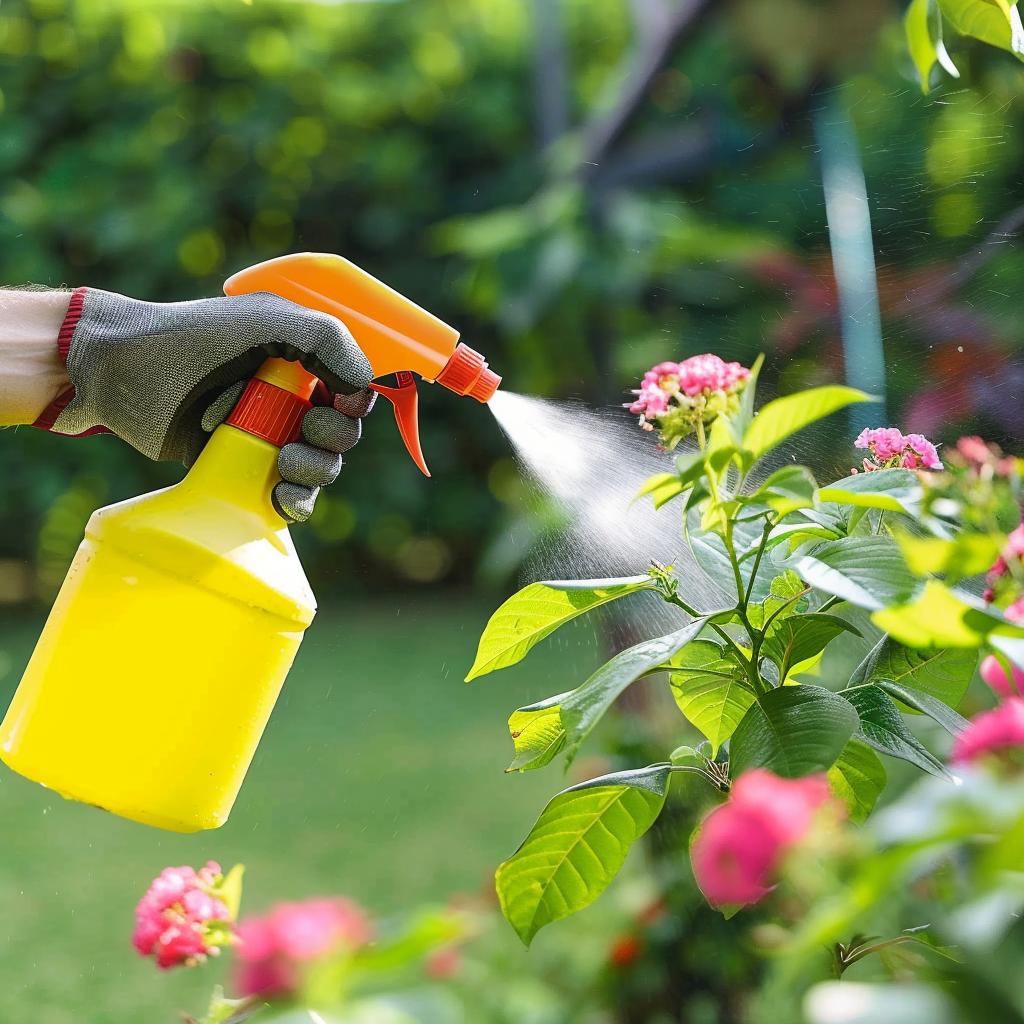The Ultimate Solution to Eliminate Garden Ants: Watch Them Flee in Seconds
Ant infestations can be a major nuisance, especially when they invade your garden. These tiny insects can cause significant damage to plants and disrupt the harmony of your outdoor space. Fortunately, there is an effective and natural method to rid your garden of ants quickly and efficiently. In this article, we will explore a foolproof remedy that can make ants escape within seconds, ensuring your garden remains healthy and ant-free.
Understanding the Ant Problem
Ants are among the most common garden pests, capable of causing extensive damage to plants and soil. They often build colonies in and around gardens, leading to a variety of problems:
- Plant Damage: Ants can damage plant roots and stems, affecting the overall health and growth of plants.
- Aphid Farming: Ants protect and farm aphids for their honeydew, which can lead to severe aphid infestations. Aphids suck the sap from plants, weakening them and spreading diseases.
- Soil Disruption: Ant colonies can disturb the soil structure, affecting plant roots and water drainage.
Given these issues, it is crucial to find an effective solution to manage and eliminate ants from your garden.
The Natural Remedy: Corn Flour
One of the most effective and environmentally friendly methods to eliminate ants from your garden is using corn flour. This simple ingredient can disrupt ant colonies and prevent them from returning. Here’s how you can use corn flour to tackle your ant problem:
How Corn Flour Works
Ants are attracted to corn flour and will carry it back to their nest, mistaking it for food. However, ants cannot digest corn flour, leading to their demise. This natural method not only eliminates ants but also prevents the use of harmful pesticides.
Application Instructions
- Identify Ant Trails and Nests: Locate the areas where ants are most active in your garden. This is usually along trails leading to their nest.
- Spread Corn Flour: Sprinkle a generous amount of corn flour along the ant trails and around their nest entrance. Ensure the corn flour is dry and free from moisture to maintain its effectiveness.
- Monitor and Reapply: Within a few hours, you should notice a significant reduction in ant activity. Reapply the corn flour as needed, especially after rain or watering, to maintain its effectiveness.
Additional Natural Remedies
In addition to corn flour, several other natural products can help manage ant infestations and their associated pests:
- Yeast: Sprinkling yeast around plants can deter ants and aphids.
- Cinnamon: Ants dislike the strong smell of cinnamon. Sprinkling cinnamon powder around plants can help repel them.
- Turmeric: This spice has a strong aroma that ants find unpleasant. Use it around ant trails to keep them away.
- Baking Soda: Mixing baking soda with sugar and placing it near ant nests can attract and eliminate ants.
Preventive Measures
While the above remedies can effectively eliminate ants, it’s essential to take preventive measures to avoid future infestations. Here are some tips to keep ants at bay:
Planting Ant-Repellent Plants
Certain plants emit scents that ants find repulsive. Incorporating these plants into your garden can act as a natural deterrent:
- Mint: The strong aroma of mint can repel ants and other pests.
- Lavender: Besides being beautiful and fragrant, lavender can keep ants away.
- Rosemary: This herb not only enhances your cooking but also serves as an ant repellent.
Maintaining Garden Hygiene
Keeping your garden clean and free from debris can prevent ants from establishing colonies. Regularly remove fallen leaves, dead plants, and other organic matter that can attract ants.
Sealing Entry Points
Inspect your garden and home for potential entry points that ants can use. Seal cracks and crevices in walls, windows, and doors to prevent ants from entering your garden or home.
Using Mulch Wisely
While mulch can help retain soil moisture and suppress weeds, it can also provide a habitat for ants. Use mulch sparingly and keep it away from the base of plants to reduce the risk of ant infestations.
Corn Flour: More Than Just an Ant Remedy
Corn flour is not only effective for controlling ants but also offers various other benefits. Here are some additional uses of corn flour in gardening and beyond:
Soil Amendment
Corn flour can improve soil structure and fertility. When mixed into the soil, it can help retain moisture and provide essential nutrients to plants.
Compost Enhancer
Adding corn flour to your compost pile can speed up the decomposition process and improve the nutrient content of your compost.
Pest Control
Besides ants, corn flour can be used to control other pests. For example, sprinkling corn flour around plants can deter slugs and snails.
Kitchen Uses
Corn flour is a versatile ingredient in the kitchen. It can be used to thicken sauces, make tortillas, and bake delicious treats.
Final Thoughts
Ant infestations can be a significant challenge for gardeners, but with the right approach, you can effectively manage and eliminate these pests. Using corn flour is a simple, natural, and cost-effective method to keep ants at bay. By following the instructions outlined in this article and taking preventive measures, you can enjoy a healthy, thriving garden free from the disruption caused by ants.
Remember, the key to successful ant control is consistency and monitoring. Regularly check your garden for signs of ant activity and reapply natural remedies as needed. With patience and diligence, you can create an ant-free garden environment that allows your plants to flourish. So, the next time you spot ants in your garden, reach for that bag of corn flour and take action—the results will be quick and impressive.



